Archive: 2024 | 2023 | 2022 | 2021 | 2020 | 2019 | 2018 | 2017
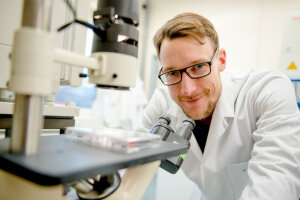
Researchers have tested the treatment efficacy of a well-known drug for an entirely different disease.
The antidepressant clomipramine may also alleviate symptoms of multiple sclerosis (MS), specifically in its progressive form, i.e. when it occurs without relapses or remissions. As yet, drugs for this type of MS have been virtually non-existent. Researchers collaborating with Prof V. Wee Yong, PhD, from the University of Calgary and Dr Simon Faissner from Ruhr-Universität Bochum screened 1,040 generic therapeutics and, based on preclinical studies, identified one that is suitable for the treatment of multiple sclerosis. They published their results in the journal “Nature Communications” from December 19, 2017.

The scent of grandma’s Christmas biscuits or the cologne of your first love – some odours are like keys to a door into the past.
The neuroscientists Dr Christina Strauch and Prof Dr Denise Manahan-Vaughan from the Ruhr-Universität Bochum have investigated which brain area is responsible for storing odours as long-term memories. Some odours can trigger memories of experiences from years back. The current study shows that the piriform cortex, a part of the olfactory brain, is involved in the process of saving those memories, the mechanism, however, only works in interaction with other brain areas. The findings have been published in the journal Cerebral Cortex.
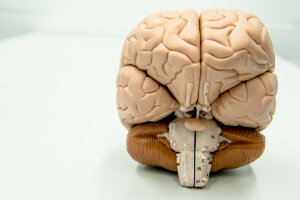
Ein Team von Hirnforschern blickt über die wissenschaftliche Routine hinaus – und fordert eine bessere Vernetzung in der eigenen Disziplin.
„Wenn wir verstehen wollen, wie das Zusammenspiel von Molekülen unser Verhalten prägt, müssen wir unseren bisherigen Forschungsansatz überdenken.“ So lautet das Fazit eines übersichtsartikels, den ein Team von Hirnforschern in der Fachzeitschrift „The Neuroscientist“ veröffentlicht hat. Sie fordern einen ganzheitlicheren Ansatz in der Neurowissenschaft.
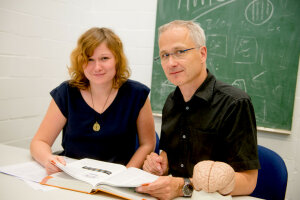
Video games are apparently better than their reputation.
Neuropsychologists of the Ruhr-Universität Bochum let video gamers compete against non-gamers in a learning competition. During the test, the video gamers performed significantly better and showed an increased brain activity in the brain areas that are relevant for learning. Prof Dr Boris Suchan, Sabrina Schenk and Robert Lech report their findings in the journal Behavioural Brain Research.
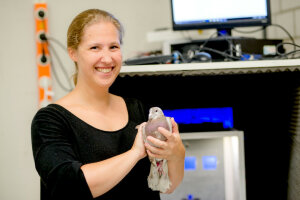
Unlike hitherto assumed, cognitive ability does not necessary require a complex mammalian cerebral cortex. A small bird brain is fully sufficient.
Pigeons are capable of switching between two tasks as quickly as humans – and even more quickly in certain situations. These are the findings of biopsychologists who had performed the same behavioural experiments to test birds and humans. The authors hypothesize that the cause of the slight multitasking advantage in birds is their higher neuronal density.
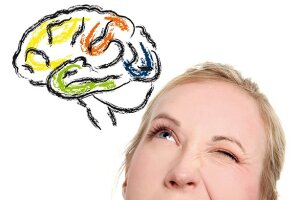
Es ist alles eine Frage der Nerven. Behaupten die Neurowissenschaftler. Und erklären es einmal im Jahr der Öffentlichkeit.
Die Hirnforscher der RUB laden zum Brain Day ein. Am 13. September 2017 dreht sich alles um aktuelle Forschungsergebnisse aus den Neurowissenschaften. Zwischen 13 und 17 Uhr erwartet die Gäste im Veranstaltungszentrum der RUB ein buntes Programm unter anderem mit Vorträgen und Präsentationen.

Hirnnervenzellen sind Sensibelchen. Nur auf natürliche Signale reagieren sie normal. Neurowissenschaftler müssen daher vielleicht umlernen.
Wenn Neurowissenschaftler Nervenzellen bei ihrer Arbeit untersuchen, nutzen sie normalerweise ein standardisiertes Verfahren, bei dem die Zellen mit künstlichen Aktionspotenzialmustern elektrisch stimuliert werden. Das ist möglicherweise ein Fehler, wie das Team von Prof. Dr. Patrik Krieger von der Abteilung für Systemische Neurowissenschaften in der Medizinischen Fakultät der Ruhr-Universität Bochum (RUB) feststellt. Die Forscher haben statt der künstlichen Aktionspotenzialmuster natürliche Erregungsmuster verwendet und damit andere Ergebnisse erzielt. Ihre Studie veröffentlichten sie in der Fachzeitschrift Frontiers in Cellular Neuroscience
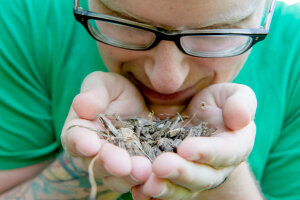
Whether something smells good or bad, does not solely depend on one’s own nose.
The emotional facial expression of others influences how positive or negative we perceive an odour. The basis of this effect seems to be the activity of a brain area that is relevant for smelling and is activated even before we perceive an odour. This is what neuropsychologists at the Ruhr-Universität Bochum found out. They published their findings in the Journal Scientific Reports.
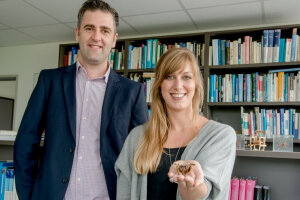
Wer sich seiner Angst vor Spinnen stellt, dem kann danach auch keine Schabe mehr was.
Spinnen machen vielen Menschen Angst, und wer Angst vor Spinnen hat, fürchtet sich oft auch vor anderen Tieren wie Ratten, Schlangen oder Schaben. Forscherinnen und Forscher der Ruhr-Universität Bochum (RUB) haben nun festgestellt, dass sich der Erfolg einer Behandlung gegen Spinnenangst auch auf andere zuvor furchteinflößende Tiere auswirkt: Personen, die ihre Angst vor Spinnen durch ein Konfrontationstraining reduziert hatten, fürchteten auch Schaben deutlich weniger. Das Team berichtet im Journal „Neuropsychopharmacology“.
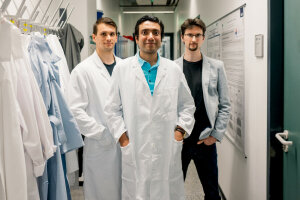
Spatial cognition or visual sense – which one are rats more likely to use when they have to navigate an unfamiliar location?
It’s never easy to orientate oneself in a new place – that applies to rats as well. Researchers from the Ruhr-Universität Bochum have examined how the brains of rats cope with the challenge. They wanted to find out whether rats rely most on what they see, or on their directional sense when navigating through space. The results of the study of neurophysiologist Prof Dr Denise Manahan-Vaughan, computational neuroscientist Prof Dr Laurenz Wiskott and their co-workers were recently published in "Frontiers of Behavioral Neuroscience”.
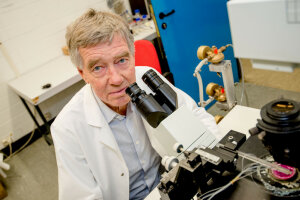
Ob Menschen – so wie Tiere – über Pheromone kommunizieren, ist umstritten. Eine Studie von Riech- und Verhaltensforschern der Universitäten Bern, Köln und Bochum könnte der Forschung neuen Antrieb geben.
Eine neue Studie legt nahe, dass der blumige Duftstoff Hedion menschliches Verhalten beeinflusst. In verhaltensökonomischen Laborstudien von Forschern der Universitäten Bern, Bochum und Köln verstärkte Hedion reziproke Verhaltensweisen nach dem Motto „Wie du mir, so ich dir“. Diese Ergebnisse sind auch deshalb von Bedeutung, da Hedion zuvor als erster Duft identifiziert wurde, der einen menschlichen Pheromonrezeptor (VN1R1) erregt. Dadurch wird eine Aktivierung einer Gehirnregion hervorgerufen, die an der Hormonsteuerung beteiligt ist, bei Frauen ist der Effekt sogar zehnmal stärker als bei Männern.
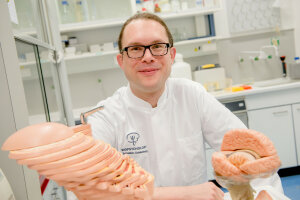
Even though they don’t have any hands, they have something in common with humans.
Left-right differences in the brain are not unique to humans. This has been proved in studies with various species, for example with pigeons at Ruhr-Universität Bochum. In a review article published in the journal Neuron, biopsychologists Prof Dr Dr h. c. Onur Güntürkün and assistant professor Dr Sebastian Ocklenburg have compiled evidence that supports this claim and enables novel conclusions how asymmetries in humans originate.

It took painstaking research by medical professionals from Bochum until the cause of this disease was discovered. Still, many questions pertaining to the underlying mechanisms have remained open.
A new rare muscle disorder has been identified by researchers at Ruhr-Universität Bochum (RUB). This hereditary disease is caused by a defect in the BICD2 gene that manifests itself in altered cellular transport processes in skeletal muscle cells. Patients suffer from muscle weakness in the legs, an unsteady gait and permanent risk of stumbling. BICD2 had been known as a disease trigger, but only for disorders originating in the nervous system. A BICD2 syndrome that manifests itself in altered skeletal muscles had never before been described.
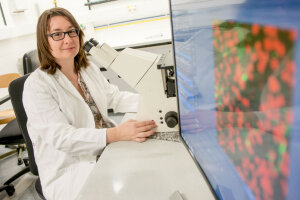
Ischemic disorders of the retina are a frequent cause of blindness. The surrounding cellular protein scaffold might play a crucial role in this process.
In case of ischemic injury to the retina, changes occur in the protein scaffold in the environment of retinal cells, the so-called extracellular matrix. Various eye diseases, such as glaucoma, are associated with such ischemic events. Researchers at Ruhr-Universität Bochum describe how the extracellular matrix is affected by these processes in the journal “Scientific Reports”.

The brain generates spoken words effortlessly. Yet the underlying brain activity differs from person to person. Why is that?
No brain is like the other. In some people it is slightly larger or slightly heavier than in others; some have more grey, others have more white matter. In academic studies, brain researchers typically lump all brains together after all data had been collected and calculate a mean value. Not so Patrick Friedrich. The PhD student at the biopsychology work unit is interested in the differences between brains of different individuals – and not just on the anatomic level. Using functional magnetic resonance imaging (functional MRI), he also records differences in brain activity.

Hilfsmittel mit den Gedanken steuern oder trotz Querschnittslähmung wieder gehen: keine Zukunftsmusik, sondern Realität.
Was Robotertechnologien in der medizinischen Therapie leisten können, hat ein außergewöhnliches Symposium am Berufsgenossenschaftlichen Universitätsklinikum Bergmannsheil gezeigt. International renommierte Experten und Wissenschaftler stellten am 21. Februar 2017 modernste robotergestützte Verfahren vor, die schon heute in der Behandlung von querschnittsgelähmten Patienten spektakuläre Erfolge erzielen.
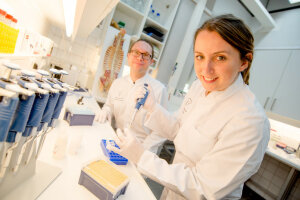
Unlike hitherto assumed, the cause is not to be found in the brain.
It is not the brain that determines if people are right or left-handed, but the spinal cord. This has been inferred from the research results compiled by a team headed by private lecturer Dr Sebastian Ocklenburg, Judith Schmitz, and Prof Dr H. C. Onur Güntürkün. Together with colleagues from the Netherlands and from South Africa, the biopsychologists at Ruhr-Universität Bochum have demonstrated that gene activity in the spinal cord is asymmetrical already in the womb. A preference for the left or the right hand might be traced back to that asymmetry.

The therapeutic antibody alemtuzumab is used for multiple sclerosis patients with active disease. It can apparently worsen the illness in some cases.
The multiple sclerosis (MS) therapy alemtuzumab can trigger severe, unpredictable side effects. This was the finding by a team led by Prof Dr Aiden Haghikia and Prof Dr Ralf Gold from the Department of Neurology of the Ruhr-Universität Bochum at St. Josef’s Hospital. In the journal Lancet Neurology, the scientists report on two patients for whom the infusion of alemtuzumab significantly worsened symptoms. The team also describes a treatment that successfully curbed the harmful side effects.
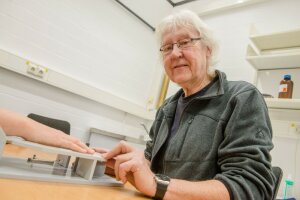
Stress is part of our everyday lives – while some thrive on it, it makes others sick. But what does stress do to our senses?
When we train them, we can sharpen our senses thereby improve our perceptual performance. The stress hormone cortisol completely blocks this important ability. In the current issue of “Psychoneuroendocrinology” neuroscientists of the Ruhr University Bochum (RUB) report on this finding.